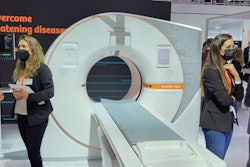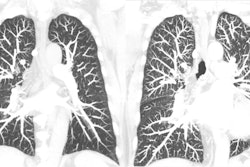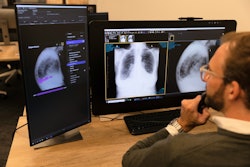Dear AuntMinnie Member,
Photon-counting CT (PCCT) continues to demonstrate utility for a wide range of clinical applications. With PCCT, low-dose CT lung cancer screening exams could even be utilized to opportunistically screen for coronary artery disease (CAD), according to our most popular story this week.
Researchers from Virginia Commonwealth University compared the performance of PCCT to invasive coronary CT angiography (CCTA), and they found that its assessment of coronary artery calcification improved on the accuracy of stenosis measurements from CCTA.
If you weren't one of our many members who've already seen our report, you can find it here or by visiting our CT Community.
PET/CT predicts breast cancer survival
Inflammatory breast cancer is rare but aggressive. Although PET/CT is currently considered to be an optional study under current pretreatment imaging guidelines, the modality should be utilized at either initial presentation or earlier in these patients, suggest new research findings from the University of Texas MD Anderson Cancer Center.
In other featured stories in our Molecular Imaging Community, a study from Canada concluded that special labeling and shipping precautions aren't needed for radioactive sentinel lymph node specimens.
TVUS-guided biopsy
Our coverage of research on the use of transvaginal ultrasound (TVUS)-guided biopsy for biopsying pelvic lesions was also high on the page view rankings this week. The 20-year study concluded that the method was safe and effective.
But that wasn't the only popular story in our Women's Imaging Community. Other highly read articles described the limited utility of current online patient education materials for breast biopsies, the opportunity for urgent care settings to increase access to mammography screening, and the performance of an artificial intelligence model for assessing BI-RADS 4 breast lesions.




















